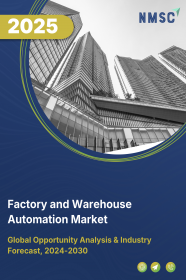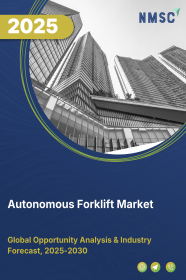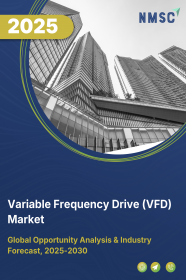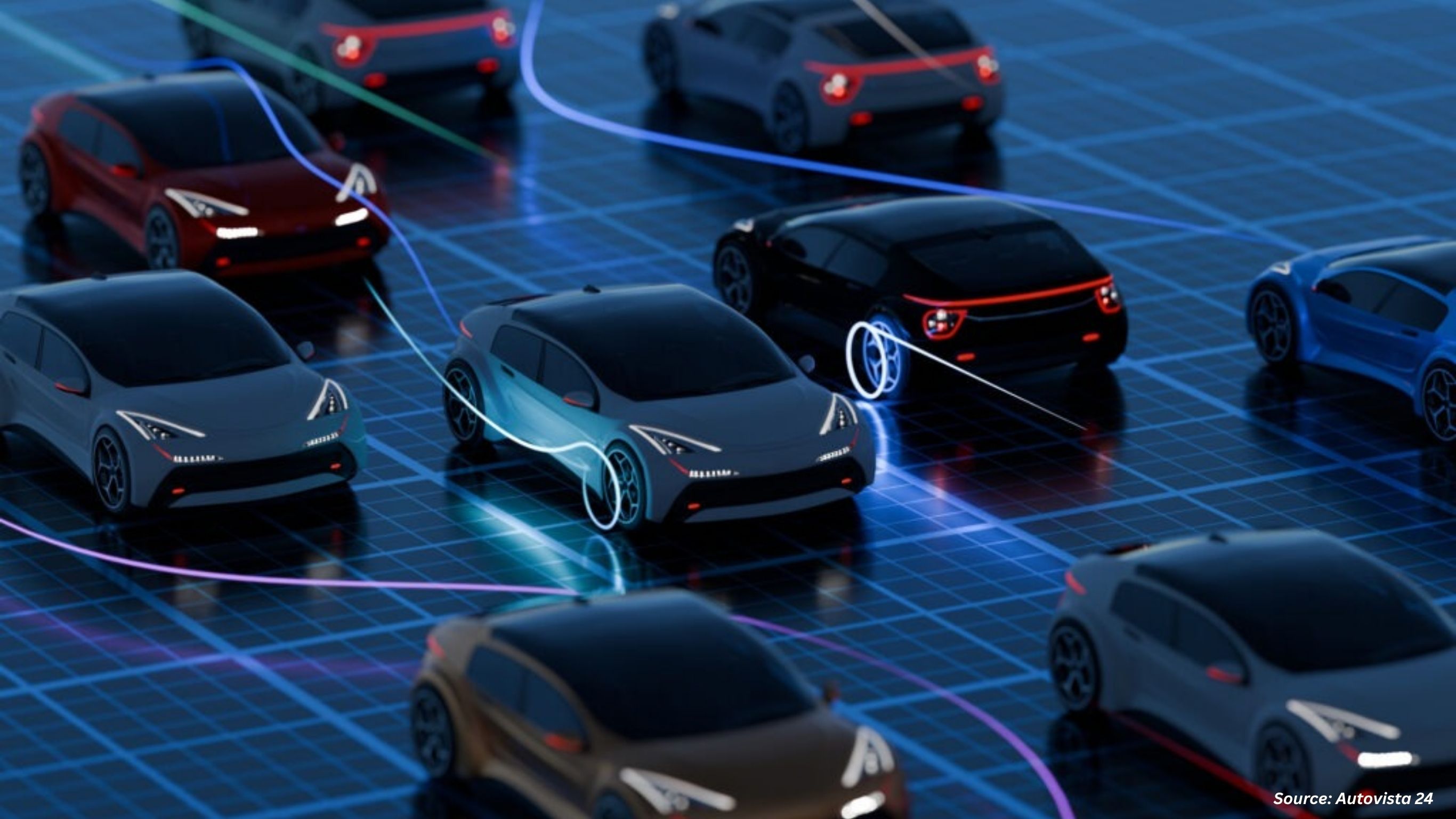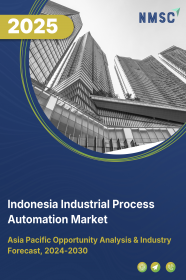
Indonesia Industrial Process Automation Market by Component (MES [Hardware, Software, Services]; DCS [Hardware, Software, Services]; PLC [Hardware, Software, Services]; SCADA [Hardware, Software, Services]; Field Instruments; Industrial Robots; Human Machine Interface; Industrial PCs; Process Analyzers & Drives) and by End User (Oil & Gas, Chemicals & Refining, Energy & Power, Pulp & Paper, Metals & Mining, Pharma, & Others) – Global Opportunity Analysis and Industry Forecast, 2025–2030
Industry: Semiconductor & Electronics | Publish Date: 08-Oct-2025 | No of Pages: 160 | No. of Tables: 121 | No. of Figures: 66 | Format: PDF | Report Code : SE999
Industry Outlook
The Indonesia Industrial Process Automation Market size was valued at USD 589.8 million in 2024 and is projected to grow to USD 622.5 million by 2025.Additionally, the industry is expected to continue its growth trajectory, reaching USD 697.2 million by 2030, at a CAGR of 2.83% from 2025 to 2030.
The expansion of Indonesia's mining and manufacturing sectors is driving significant demand for industrial process automation, as companies seek to enhance operational efficiency, reduce costs, and improve safety. Automation technologies are streamlining critical processes such as drilling, material handling, and production, helping businesses optimize workflows and maintain competitiveness. However, high initial investment costs, particularly for small and medium-sized enterprises, remain a major barrier to widespread adoption. The integration of AI and ML offers a substantial opportunity to boost efficiency, improve decision-making, and reduce downtime, positioning Indonesia for long-term growth in advanced automation technologies and solidifying its leadership in the industry.
Mining Sector Expansion Fuels the Indonesia Industrial Process Automation Market Growth in
The growth of Indonesia’s mining sector is significantly driving the demand for industrial process automation, as businesses strive for better operational efficiency, improved safety, and reduced costs. Automation technologies streamline critical mining processes such as drilling, material handling, and ore extraction, enhancing productivity and reducing human error. The increased reliance on automation in the mining sector helps optimize workflows and ensure safer, more cost-effective operations. This shift toward automation in the mining sector is accelerating market expansion, reflecting the industry's push for innovation, higher efficiency, and scalability in response to growing global demand.
Manufacturing Industry Investment Boosts Automation Adoption
In addition to the mining sector, investment in Indonesia’s manufacturing industry is a major driver for the industrial process automation market. As the need for improved productivity, cost reduction, and operational efficiency intensifies, industries are increasingly turning to automation solutions. These investments support the integration of advanced automation technologies, allowing businesses to optimize production processes, minimize human error, and improve overall operational control. The focus on automation is growing across Indonesia’s manufacturing landscape, as industries seek to enhance efficiency, reduce costs, and maintain competitiveness in an increasingly globalized economy.
High Initial Investment Costs Restrict the Indonesia Industrial Process Automation Market Expansion
Despite the growing demand for automation, high initial investment costs remain a significant barrier to the adoption of industrial process automation market in Indonesia. The substantial capital required for equipment, system integration, and implementation is prohibitive, especially for small and medium-sized businesses. These financial constraints hinder many companies from embracing advanced automation technologies, slowing the overall pace of market growth and limiting widespread adoption, particularly among smaller enterprises with limited resources.
AI and ML Integration Unlocks Future Growth in Industrial Process Automation
The integration of artificial intelligence (AI) and machine learning (ML) presents a major opportunity for the market. These technologies enable predictive maintenance, enhance decision-making, and optimize production workflows with minimal human intervention. AI and ML significantly improve efficiency, reduce operational downtime, and drive innovation across various industries. As these intelligent systems continue to gain traction, they play a crucial role in elevating Indonesia’s automation capabilities, driving long-term growth, and positioning the country as a leader in advanced manufacturing and industrial technologies.
Competitive Landscape
The promising players operating in the Indonesia industrial process automation industry include Siemens AG, ABB Ltd., Schneider Electric SE, Emerson Electric Co., Yokogawa Electric Corporation, Honeywell International Inc., Rockwell Automation, Inc., Mitsubishi Electric Corporation, Omron Corporation, Hitachi, Ltd., Endress+Hauser Group, Valmet Oyj, Fuji Electric Co., Ltd., Bosch Rexroth AG, and PT Len Industri, and Others.
Indonesia Industrial Process Automation Market Key Segments
By Component
-
Manufacturing Execution Systems (MES)
-
Hardware
-
Software
-
Services
-
-
Distributed Control Systems (DCS)
-
Hardware
-
Software
-
Services
-
-
Programmable Logic Control (PLC)
-
Hardware
-
Software
-
Services
-
-
Supervisory Control and Data Acquisition (SCADA)
-
Hardware
-
Software
-
Services
-
-
Field Instruments
-
Industrial Robots
-
Human Machine Interface (HMI)
-
Industrial PCs
-
Process Analyzers and Drives
By End User
-
Oil and Gas
-
Chemicals and Refining
-
Energy and Power
-
Pulp and Paper
-
Metals and Mining
-
Pharma
-
Cement & Glass
-
Others
Key Players
-
Siemens AG
-
ABB Ltd.
-
Schneider Electric SE
-
Yokogawa Electric Corporation
-
Rockwell Automation, Inc.
-
Mitsubishi Electric Corporation
-
Omron Corporation
-
Hitachi, Ltd.
-
Endress+Hauser Group
-
Valmet Oyj
-
Fuji Electric Co., Ltd.
-
Bosch Rexroth AG
-
PT Len Industri
Report Scope and Segmentation
|
Parameters |
Details |
|
Market Size Value in 2025 |
USD 622.5 million |
|
Revenue Forecast in 2030 |
USD 697.2 million |
|
Value Growth Rate |
CAGR of 2.83% from 2025 to 2030 |
|
Analysis Period |
2024–2030 |
|
Base Year Considered |
2024 |
|
Forecast Period |
2025–2030 |
|
Market Size Estimation |
Million (USD) |
|
Growth Factors |
|
|
Companies Profiled |
15 |
|
Market Share |
Available for 10 companies |
|
Customization Scope |
Free customization (equivalent to up to 80 working hours of analysts) after purchase. Addition or alteration to country, regional, and segment scope. |
|
Pricing and Purchase Options |
Avail customized purchase options to meet your exact research needs. |

















 Speak to Our Analyst
Speak to Our Analyst



